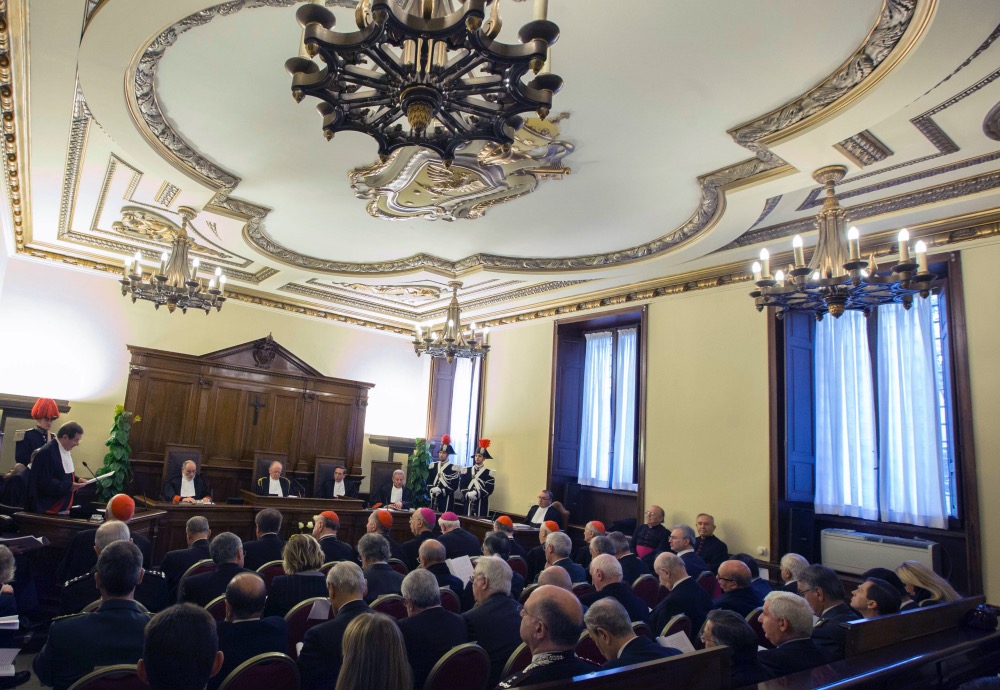Rome, Italy
AP
Pope Francis has made another set of changes to the Vatican City State’s legal code, which has come under heightened scrutiny and criticism as Vatican prosecutors seek to crack down on financial crimes and mismanagement by Holy See monsignors and money managers.
In a new law published Tuesday, Francis made two modifications to criminal trial procedures when defendants don’t show up, one of which allows their lawyers to defend them fully even in absentia.

In this 31st January, 2015 file photo, judge Giuseppe Dalla Torre, the now retired president of the Vatican tribunal, centre, attends the inauguration ceremony of the 86th Judicial Year of the Vatican tribunal at the Vatican. Pope Francis has made another set of changes to the Vatican City State’s legal code, which has come under heightened scrutiny and criticism as Vatican prosecutors seek to crack down on financial crimes and mismanagement by Holy See monsignors and money managers. PICTURE: AP Photo/Riccardo De Luca/File photo.
The change could be seen as necessary, given an ongoing investigation into a Vatican real estate investment. The probe has implicated Italian nationals who, if the case goes to trial, may decide to not step foot in the city state’s tribunal given the risk of possible arrest.
In another reform, Francis consolidated the prosecutors’ office, making clear that all stages of appeal will be prosecuted from within their ranks.
Recently, Francis appointed an expert in Italian labour law, Catia Summaria, as the new chief prosecutor for the Vatican appeals court, and named two new appeals judges in a sign that the Vatican might be anticipating a growing appeals caseload.
In the absolute monarchy of the Vatican, the pope is supreme legislator, executive and judge. Over the years, popes have made piecemeal modifications to the Vatican’s city state’s legal code, which dates from an 1889 Italian code no longer in use and also draws from the Catholic Church’s in-house canon law. The code’s most recent overhaul has been a series of reforms focusing on punishing financial crimes.
Defence lawyers say the Vatican code still contains grave limits to the rights of defendants, particularly in the investigative phase, during which the defense has no rights to see case documentation and the prosecutors have near-free reign to gather evidence that can be used at trial.
Vatican prosecutors have defended the system, saying the rights of the defence are guaranteed including in the “summary rite” that is being used in the investigation into the Vatican’s London real estate investment.
The prosecutors said in a statement to The Associated Press last month that the summary rite, which doesn’t foresee a judge overseeing the probe, was necessary given the 1960 abolition of the special court that previously handled serious crimes. Prosecutors said they themselves ensure the extra procedural guarantees for the defense are being respected.
Italian daily Il Foglio and other Italian media have run a series of reports and analyses in recent weeks that have been highly critical of the Vatican legal system and questioned the independence of the tribunal. In the new law Tuesday on the prosecutors’ office, Francis wrote that the prosecutors act with “autonomy and independence”.






